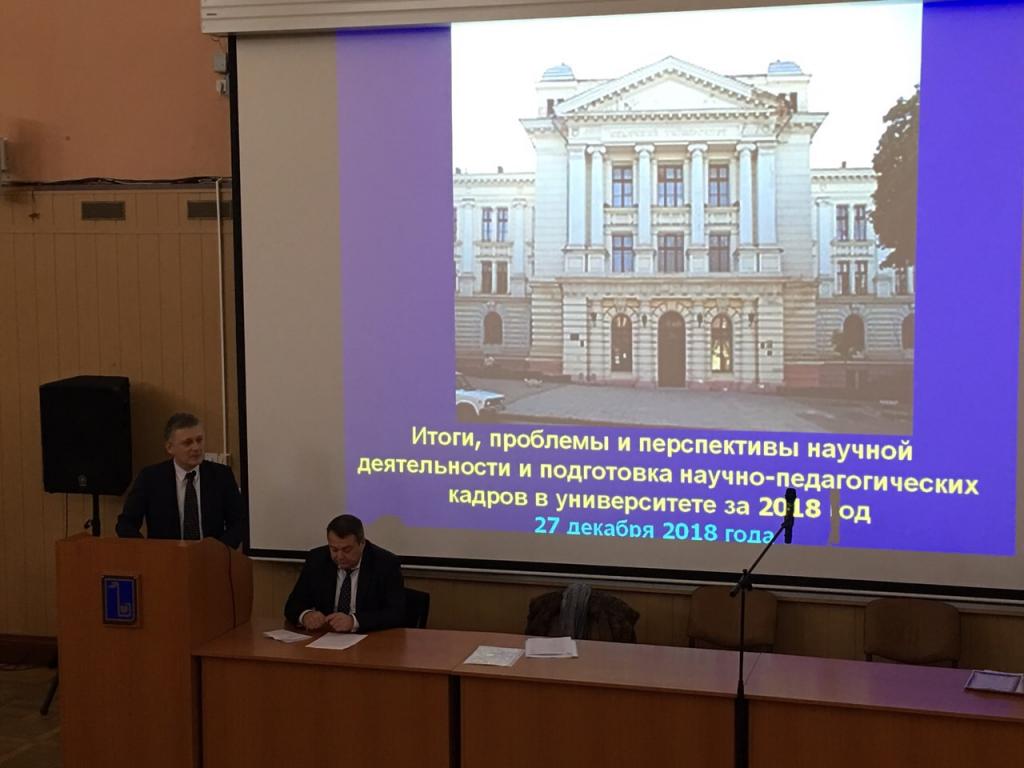It is difficult to imagine a large company, state or educational institution, in which there is no such position. Scheduling meetings, preparing documentation, working with correspondence, receiving calls are only part of the responsibilities of the person holding the position that we will study. Since 2016, the circle of basic functions has been outlined in the new regulatory provision - the professional standard of the secretary. Now it can be used as a basis for the formation of necessary service instructions.
Profession Features
Despite the constant change in the lists of the most popular and sought-after professions in the world, the position of secretary continues to be quite widespread. Officially in Russia, this profession has existed for three centuries. In 1720, Peter I approved it, the requirements for employees were quite high: literacy, knowledge of laws, the ability to draw up documents.
Initially, only men were secretaries, today it is mainly a female profession. This is partly due to the fact that the performance of secretarial duties requires perseverance, diligence, the ability to perform the same and monotonous work.
What are the requirements of modern managers to employees holding such a position? The secretary should be a confident user of basic office computer programs, be able to handle office equipment, work with documentation, have good communication skills (good speech, dialogue skills, politeness, etiquette). In addition, be attentive, organized, disciplined, emotionally stable.
As for the necessary education, there are no strict requirements in this regard in the professional standard of the secretary. If you have a general education, professional experience or special courses are enough. However, the presence of a diploma of higher education, as a rule, gives an advantage in hiring.

Professional standard
Requirements for secretarial work acquired the form of a regulatory act in 2016. A generalized professional standard was adopted for a specialist in documentary and organizational support for organization management. The main objective of the standard is to optimize personnel policy. The head can focus on him when assessing the professional qualities of the employee. The document is also used in the preparation of training programs for the training of secretaries.
Professional standard contains:
- list of basic labor functions;
- list of skills, knowledge, knowledge necessary for their implementation;
- requirements for educational level and work experience.
The document also lists possible job titles and requirements for them. It includes, for example, professional standards "Secretary of the head", clerk and others.
The structure contains several semantic blocks:
- general information (designation of the purpose of the activity, codifier);
- functional map (list of labor functions and qualification categories);
- description of labor functions (specification of the list of duties, skills prescribed to the employee);
- information about standards developers.
The third section begins with the professional standard of the secretary-administrator, for the qualification, educational level and experience of which the most lenient requirements are made.
The main functions of the employee holding the studied position are formulated as follows:
- organized collection of professional information;
- information support on current issues;
- systematization, documentation and storage of incoming information;
- accompaniment of business events;
- creating the necessary conditions for the work of the head of the organization and administrative support.
Job description
In his work, the secretary is guided by the current legislation, the organization’s charter, orders and orders of the head, his own job description. It is in the last document that professional tasks are assigned that are assigned to the official. Starting to perform official duties, the employee should be familiar with the main provisions of the instructions. Its provisions may serve as evidence in the event of a conflict of work situations. Therefore, the contents of the instructions should be specific. And exclude the possibility of double interpretation.
The job description of the secretary for professional standards is compiled taking into account the specifics of a particular organization and includes the following sections:
- general provisions;
- employee functions
- job responsibility;
- employee rights;
- other conditions and requirements.
The general provisions indicate to which category the employee belongs and to whom is subordinate, the procedure for appointment and dismissal, requirements for qualifications, knowledge and skills. The following describes in detail what exactly the employee’s functional is and what rights he has. The section on official responsibility indicates those violations in the work for which the employee may be punished.
The job description is approved by the head of the organization and is brought to the attention of the employee (under signature).

Professional standard "Secretary of the head"
In accordance with its provisions, it is desirable to accept employees with higher education (at the undergraduate level) or secondary professional education for this position. In addition, work experience (at least two years) is appreciated.
The professional standard lists the main labor actions of an employee:
- coordination of temporary plans with the head;
- the choice of the planning form and the management of the organizer of the boss;
- coordination of meetings, negotiations with partners, customers, employees;
- informing the leader about the time and schedule of upcoming events.
The secretary of a leader must have a number of skills to perform the above actions. Set goals, determine the order and priority of their implementation, help the manager in the distribution of working time, ensure information security and choose the most convenient ways to notify about upcoming events. Using these theses, the job description of the secretary of the head of the professional standard is usually drawn up.
He should also be familiar with the specifics of the organization’s core business, the provisions of labor law, and the rules for conducting business negotiations.
The listed labor activities of the secretary of the head include a number of different responsibilities:
- work day planning;
- organization of telephone conversations and business trips;
- work with visitors in the reception;
- organization of work events and meetings;
- maintaining the necessary working order in the office of the head;
- control over the execution of orders and instructions;
- execution of working documentation;
- development of local acts if necessary;
- storage of documentation;
- organization of information interaction of the organization’s employees and management.
Principal responsibilities of the secretary of the head
The position of secretary of the head of the organization involves constant interaction with people and willingness to advise clients and visitors on basic issues. Of course, a lot depends on the specifics of the main activity of the institution and the position of management.They have a significant impact on the drafting of the job description of the Secretary according to the professional standard.
The general provisions indicate that the position belongs to the category of technical executors, the requirements for the education and length of service of the employee are determined. The appointment is made directly by the head. To formulate the necessary knowledge and skills, a professional standard of the secretary can be used. These include: knowledge of the basics of office work; knowledge of the methods of registration and processing of information data; PC ownership familiarity with the rules of business correspondence and communication; knowledge of internal rules and safety procedures and much more.
The second section of the instructions describes the duties of the employee. In the third section - his rights. For example, the manager’s secretary has the right to get acquainted with draft decisions related to his activities, make suggestions on optimizing his work, request information and documents necessary to carry out assignments, etc.
The final section of the instruction spells out employee liability measures in case of improper performance of official duties, causing material damage.

Clerk
The main task of the clerk is to control the workflow of the unit or the entire organization (often there are several employees on the staff performing this function). The list of key responsibilities is indicated in the professional standard of the secretary-clerk:
- archiving and proper storage of documents;
- organization of work with documents;
- the formation of cases in accordance with the nomenclature requirements of the organization.
To apply for this position, the applicant needs secondary vocational education.
During the organization of work with documents, the secretary-clerk can receive and process incoming materials, sort them and register them if necessary, prepare them for consideration by the head, redirect them to the direct executors, and maintain a database.
To ensure proper storage of documents, the clerk must be able to develop a nomenclature of cases, verify the correctness of paperwork, form cases and determine the timing of their storage, distribute and file documents.
Before the documents are sent to the archives for storage, the clerk checks the terms of their storage (permanent or long-term), draws up an internal inventory, draws up the file covers.

Referent or secretary-administrator?
It can sometimes be difficult to sort out the hierarchy of secretarial posts and their responsibilities. What, for example, is the fundamental difference between the assistant secretary and the administrator? After all, the functions they perform are quite similar.
The job description of the secretary-administrator according to the professional standard provides for:
- reception and distribution of incoming phone calls;
- organization of work with visitors;
- implementation of coordinating functions.
He should be familiar with the rules of business etiquette, telephone conversations (with customers, partners, media representatives and others), be able to maintain a conversation and smooth out a conflict situation. The coordinating functions of the administrator are usually to keep a log of employee movements, courier rides and driver routes.
There is no separate professional standard for the secretary-referent yet, but his duties are in many respects similar to the assistant manager. Like the administrator, he works with correspondence, answers calls, meets and accompanies visitors, draws up travel schedules. However, all this is directly related to the figure of the head of the organization. In some cases, his responsibilities can be expanded, which is reflected in the work schedule (may be irregular).

Professional standards of the secretary of the academic department
Such employees can be found in the staff of a school, college or university. The post belongs to the category of teaching support staff. To determine the basic functionality, the employer can use the general standard of a specialist in documentation support. The Ministry of Labor has not yet approved a separate professional standard for the secretary of the educational unit of the educational institution. For work, professional education (secondary) in the field of office work or vocational training on the basis of general education is necessary. There are no strict requirements for the availability of work experience.
While in this position, the employee:
- accepts correspondence, transfers it to the head of the educational organization and performers;
- conducts paperwork (including electronic);
- prepares draft orders for the contingent of students;
- draws up personal files of students;
- keeps track of teaching hours of teachers;
- makes requests, letters;
- exercises control over the execution of orders and instructions of the head.

Scientific Secretary and his duties
This post belongs to the field of science. Scientific secretaries are in demand in universities, research institutes, academies, scientific organizations. As a rule, they provide the work of researchers and dissertation councils. The professional standard of the scientific secretary involves the planning of scientific events (meetings, conferences, round tables), their organization and conduct, the preparation of relevant documentation and monitoring the implementation of decisions made.
Employees with a scientific degree, experience in organizational and scientific work (at least 5 years), and publications in peer-reviewed publications can be appointed to this position.
Scientific Secretary:
- collects proposals into the annual plan of scientific development and research;
- controls the timely implementation of established thematic plans of scientific work and the preparation of relevant reports;
- prepares draft work plans for the scientific (scientific and technical) council, monitors the implementation of its decisions;
- considers the materials required for conferring the academic rank and defending a dissertation;
- prepares proposals for a plan for the publication of scientific papers;
- develops criteria for evaluating the performance of employees for certification;
- formulates proposals for advanced training and internships for scientists.

Spokesperson Functionality
Pretty “young” profession. In Russia, it began to gain popularity around the mid-90s of the last century. In the professional standard of the secretary, the name of this post is not allocated separately. But for many organizations, having such an employee is an urgent need. It is he who forms the public opinion about the company. The main responsibilities include: organizing press conferences; the content of the organization’s website; preparation of press releases; planning information campaigns (in the press, networks, on television) aimed at creating a positive image of the company.
The press secretary’s professional standard stipulates that the applicant must have a university degree in journalism, advertising, philology or PR. Experience of work (from 3 years) in the relevant field, competent oral and written speech, knowledge of a foreign language are also desirable.
